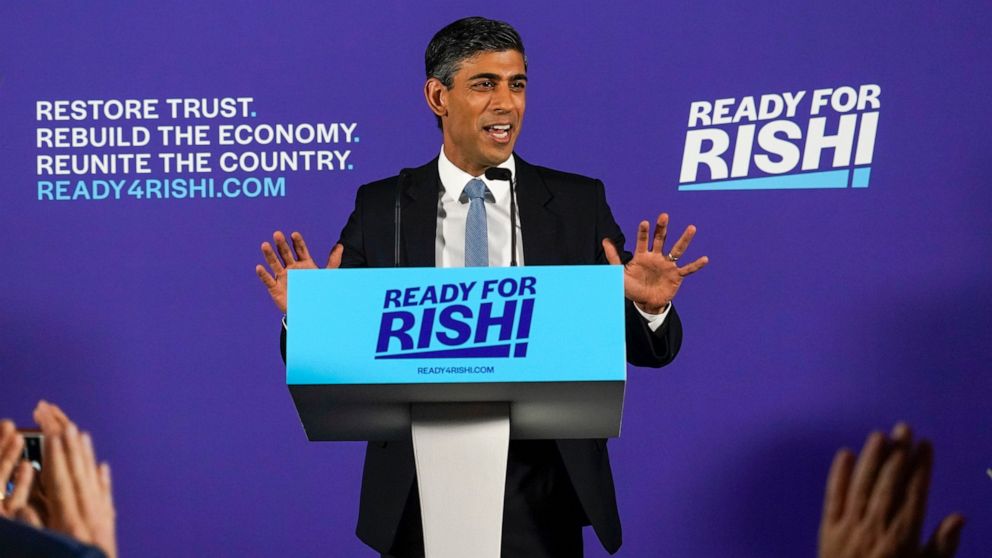LONDON — Harmeet Singh Gill was excited to hear that Rishi Sunak would become Britain’s first prime minister of color — news that came as he celebrated the Diwali festival in a London neighborhood sometimes called Little India.
“It’s almost a watershed moment,” the 31-year-old said as he volunteered at the cavernous dome-topped house of worship that serves the Sikh community in west London’s Southall neighborhood. “It’s just a sign of 21st-century Britain, where it doesn’t matter what background you’re from now, that you can rise up the ranks to the positions of power.”
But, for many people of color in the U.K., it’s not so simple. Sunak, 42, will be the first Hindu and the first person of South Asian descent to lead the country, which has a long history of colonialism and has often struggled to welcome immigrants from its former colonies — and continues to grapple with racism and wealth inequality.
King Charles III asked Sunak, whose parents moved to Britain from Africa in the 1960s, to form a new government Tuesday, a day after he was chosen leader of the governing Conservative Party.
The milestone is doubly significant for many people with Asian roots because it comes during Diwali, the five-day festival of light celebrated by Hindus, Sikhs and Jains.
Earlier this year, Sunak, a practicing Hindu, spoke about the significance of lighting Diwali candles outside the official Downing Street residence of the Chancellor of the Exchequer, the post he held for two years until he resigned in July.
“It was one of my proudest moments that I was able to do that on the steps of Downing Street,” he told the Times of London. “And it meant a lot to a lot of people and it’s an amazing thing about our country.”
It wasn’t always that way in Britain.
In 1968, Conservative lawmaker Enoch Powell delivered his infamous “rivers of blood” speech decrying mass migration and advocating assistance for immigrants to “return home.”
As recently as 1987, there were no people from ethnic minority backgrounds in the House of Commons. One Asian and three Black members were elected to Parliament that year.
Numbers have increased steadily since, with 65 people from ethnic minority groups, or 10% of the House of Commons, elected during the last general election in 2019. That still isn’t fully representative of the U.K. as a whole, where 13% of the population identify as ethnic minorities.
Sunak’s win is evidence of this progress — a step toward…
Click Here to Read the Full Original Article at ABC News: International…

